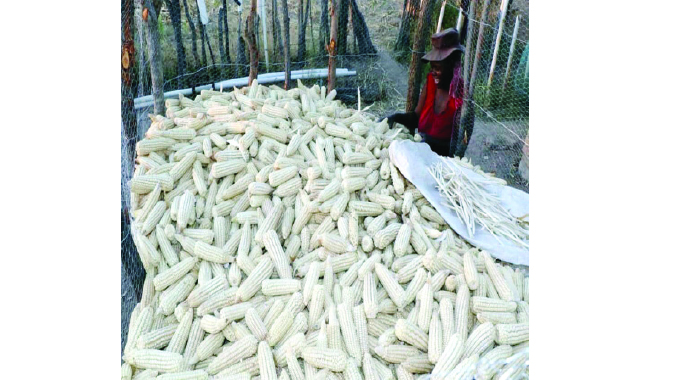Hypertension cases rise in Zimbabwe

Thandeka Moyo-Ndlovu , Health Reporter
CASES of the second most prevalent chronic disease in the country, hypertension, are on the increase in Zimbabwe with health authorities warning that without lifestyle changes many may succumb to the silent killer.
As the world marked the International Hypertension Day yesterday, it emerged that thousands who suffer from high blood pressure in Zimbabwe are not even aware of it.
The World Health Organisation (WHO) reports that as many as 39 percent of Zimbabweans may be suffering from the silent killer which is one of the leading causes of death in the country.
Defined as the condition in which the force of the blood against the artery walls is too high, hypertension can be prevented by a healthy lifestyle.
Zimbabwe joined other countries in marking World Hypertension Day yesterday under the theme “Measure Your Blood Pressure Accurately, Control It, Live Longer” which aims to combat low awareness rates, mostly in low-income countries.
The non-communicable disease has no symptoms and overtime if untreated, it can cause health conditions such as heart disease and stroke.
People living in urban areas are at a higher risk of hypertension based on their usually sedentary lifestyles.
Eating a healthier diet with less salt, exercising regularly and taking medication can help lower blood pressure and these lifestyle-related behaviours have been proven to be effective in preventing and treating hypertension.
High blood pressure which is not managed can lead to impaired vision, severe headache, chest pain and difficulty in breathing.
These problems can complicate and cause heart attack, heart failure, kidney failure, blindness, rupture of blood vessels followed by paralysis and death.
Such complications are preventable through early detection of high blood pressure and management once detected.
Statistics from the recent Zimbabwe Vulnerability Assessment Committee (ZimVAC) show that hypertension is the second leading common chronic illness after HIV and Aids.
“Nationally 24 percent of households have at least one member who suffers from a chronic illness.
Of those HIV and Aids accounts for 28 percent followed by hypertension at 26 percent and then diabetes at 15 percent,” read the report.
ZimVAC says 24 percent of those affected by hypertension also struggle to get their medication which is crucial for managing the silent killer.
Dr Tatenda Simango, a local general practitioner says adults should have blood pressure measured routinely at least every five years until the age of 80 years.
“Blood pressure tends to run in families and children of hypertensive parents tend to have higher blood pressure than age-matched children of parents with normal blood pressure. This familial concordance of blood pressure may be explained, at least in part, by shared environmental influences,” he said.
Dr Simango said high uptake of salt, obesity, acute pain and stress can also trigger hypertension.
“Low birth weight is associated with subsequent high blood pressure. This relationship may be due to foetal adaptation to intrauterine under-nutrition with long-term changes in blood vessel structure or in the function of crucial hormonal systems.”
The World Health Organisation recently raised concern over the increasing number of people suffering from hypertension.
WHO said most people with hypertension are unaware of the problem because it may have no warning signs or symptoms.
“It is essential that blood pressure is measured regularly so that members of the public are aware of their condition which may prevent deaths.”
WHO suggested that people should follow a healthy diet, maintain a healthy weight as obesity increases one’s risk to hypertension.
The Ministry of health and Child care has said Government is seeking funding to conduct a national survey on the actual prevalence of hypertension to enable the designing of an appropriate programme to combat the silent killer. — @thamamoe.









Comments